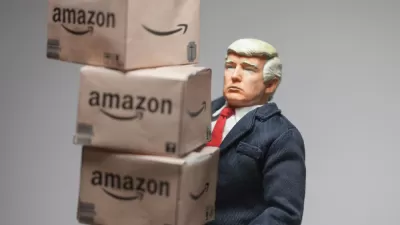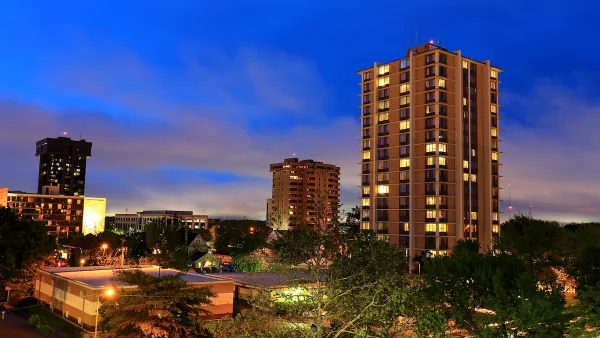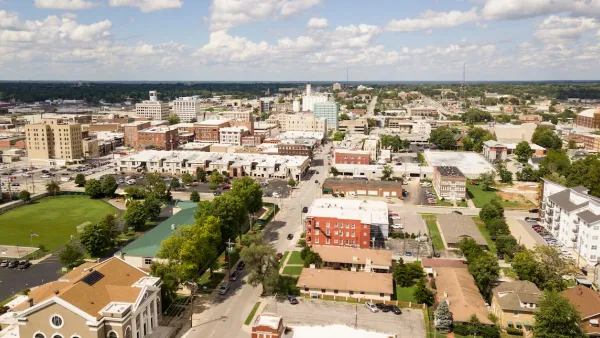The pundits got it wrong.

Since Amazon announced its request for proposals for a new second location, handicapping the behemoth corporation's final choice has been almost a cottage industry for many urbanists.
The victor in this contest was promised economic development spoils like a $5 billion construction project, a highly-taxable employment base of 50,000, and a chance for politicians to fast-lane legacy infrastructure projects without it looking too much like a corporate giveaway.
When Amazon CEO Jeff Bezos took to the podium at a press conference held in Seattle to make the long-awaited announcement, the stakes were high. The choice would be made from one of three finalists: Quahog, Springfield, and South Park. When it came time to make the announcement, Bezos got straight to the point, before going on a bit of a tangent. Here's his full statement.
We will be opening Amazon's second headquarters in Springfield. We chose this location for to its metaphorical powers, with its long history of representing all that is troubled and redeeming about middle America, its access to a reliable energy source, and a talented workforce that seems to never get caught napping. I would also like to personally thank Mr. Montgomery Burns for the special attention and the scalp maintenance tips.
It's not at all weird that you've been so interested in which city we might pick for the second headquarters of a company with relatively short history in an industry with massive turnover, but here were are nevertheless. I appreciate how many cities have given me the the password to the Citibank app with connection to their General Fund to help me make my choice. Everyone being so no nice to me for so many months really made this process worth it. It was very difficult to cut down the list of finalists to three, but this final choice was even harder, because I don't want my friends in Quahog and South Park to stop texting the deets for our Bachelor viewing parties on Mondays.
To the residents of Quahog and South Park, I solemnly say, this isn't about you; this is about me. I hope we'll still be friends.
FULL STORY: April Fool's Day

Maui's Vacation Rental Debate Turns Ugly
Verbal attacks, misinformation campaigns and fistfights plague a high-stakes debate to convert thousands of vacation rentals into long-term housing.

Planetizen Federal Action Tracker
A weekly monitor of how Trump’s orders and actions are impacting planners and planning in America.

In Urban Planning, AI Prompting Could be the New Design Thinking
Creativity has long been key to great urban design. What if we see AI as our new creative partner?

Pedestrian Deaths Drop, Remain Twice as High as in 2009
Fatalities declined by 4 percent in 2024, but the U.S. is still nowhere close to ‘Vision Zero.’

King County Supportive Housing Program Offers Hope for Unhoused Residents
The county is taking a ‘Housing First’ approach that prioritizes getting people into housing, then offering wraparound supportive services.

Researchers Use AI to Get Clearer Picture of US Housing
Analysts are using artificial intelligence to supercharge their research by allowing them to comb through data faster. Though these AI tools can be error prone, they save time and housing researchers are optimistic about the future.
Urban Design for Planners 1: Software Tools
This six-course series explores essential urban design concepts using open source software and equips planners with the tools they need to participate fully in the urban design process.
Planning for Universal Design
Learn the tools for implementing Universal Design in planning regulations.
planning NEXT
Appalachian Highlands Housing Partners
Mpact (founded as Rail~Volution)
City of Camden Redevelopment Agency
City of Astoria
City of Portland
City of Laramie





























